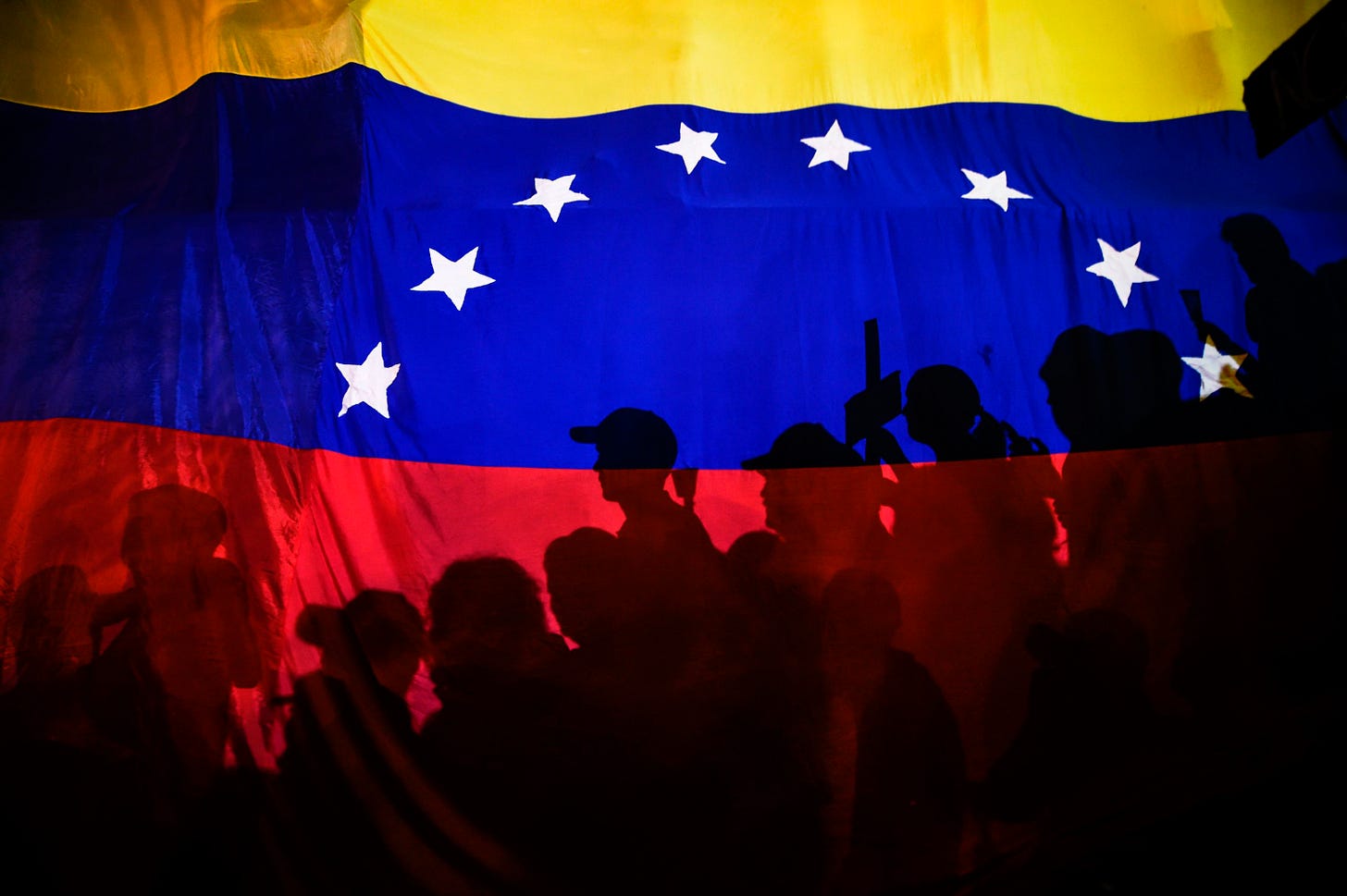Military Action Against Venezuela? It's Harder Than Trump Thinks.

Lindsey Graham has proposed a military bluff against Venezuela. The problem is that Venezuela will call it.
Over the weekend, Axios reported that Donald Trump is considering a blockade against Venezuela and quoted Senator Graham as saying that as soon as the Maduro regime sees an American presence in the region, “this thing ends pretty quickly.” It’s not clear why, exactly, Graham would believe that.
There are two recent military operations in Latin America to draw lessons from: the successful invasions of Panama and Grenada. Panama and Grenada had, respectively, populations of 2.5 million and 100,000 at the time of the American invasions.
The United States employed 27,000 troops for the invasion of Panama and 7,000 troops for the invasion of Grenada.
Thirty-two million people live in Venezuela.
In Panama, the United States had a century-long presence, due to our building and controlling the Panama Canal, which made our military intimately familiar with the strategic considerations there. Grenada was an island less than 1,500 miles from Miami and less than a decade into its independence from the United Kingdom.
Venezuela has a landmass of 354,000 square miles. It’s coastline alone is 1,700 miles long and it has borders with both Colombia and Brazil, two countries with strategic importance to America and vulnerable to ELN and FARC insurgents. Just think through the logistical challenges of projecting force to this theater—never mind the strategic challenges presented by needing to ensure that military action in Venezuela would not destabilize either of its neighbors.
Finally, it’s important to understand that in both Grenada and Panama the American mission was reinstating legitimate governments that had been recently ousted by guerrillas.
The Chavez-Maduro regime in Venezuela is different. Loyalty to Maduro has been institutionalized inside the armed forces of Venezuela. Which are made up of 123,000 active duty personnel and 220,000 paramilitary troops.
Based on all of these factors, it is difficult to see how any operation in Venezuela could be conducted quickly. And even if the United States were to quickly overthrow Maduro through a sea landing in Caracas, rather than invading from the south through Colombia, it would still have to deal with FARC and ELN insurgents who would be aided by the hundreds of Cuban intelligence operatives (and thousands of Cuban guerrilla fighters) already in Venezuela.
Blockade, on the other hand, is less costly, but it carries its own costs. First, a blockade is an act of war. America would need to be clear about this fact and ready to accept the consequences.
Second, our Navy is already stretched quite thin. A blockade would require pulling ships from the Persian Gulf, the Mediterranean, and the Asian theaters—which could invite aggression from Iran, Russia, and/or China. And a blockade would mean blocking Chinese, Russian, and Iranian ships, all of which do business in Venezuela. So a blockade wouldn’t work unless Trump was willing to risk military conflicts with China and Russia and the president’s history of caving to Iran and China indicate that he is not likely to enforce a blockade if push comes to shove.
All of these considerations should be weighed against the fact that the current strategy towards Venezuela is working and the Maduro regime is running out of air. Adding a military element to it could hasten Maduro’s demise, but would come at a cost.
In the meantime, diplomacy can go a long way. The administration has tried to convince the Vatican to publicly come out against Maduro, with little luck so far. Combining such efforts with cooperation from European and Catholic-majority Latin American allies will increase the pressure on the Vatican.
Sanctions have also been working. While the administration is guilty of using sanctions unilaterally and aggressively, in the case of Venezuela, there has been very little pushback: they enjoy broad support among our allies, many of whom are participating in the sanctions regime, and bipartisan support in Congress.
The most important element of U.S. strategy in Venezuela is patience.
You should never rattle your saber unless you’re willing to use it. Lindsey Graham ought to know better. Once upon a time, he did.

